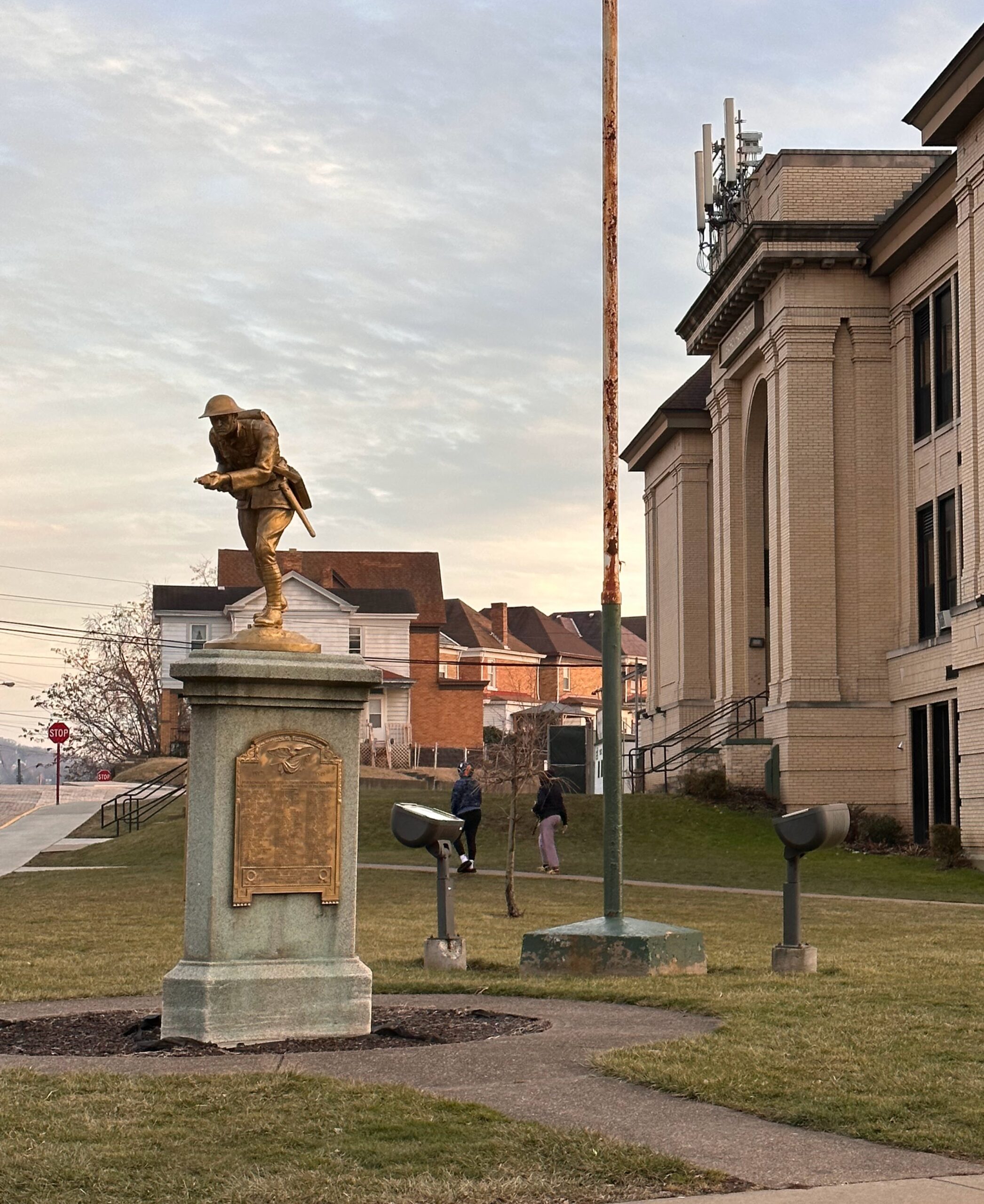See update for March 17, 2023, at end of post.
I tend not to have a lot of sympathy for members of the U.S. military. They join, for whatever personal reasons, to advance U.S. imperialism, to fight in wars without end, killing poor people, mostly of color, in other countries.
But I do think that if someone puts their life on the line for their country, that country owes them everything. And that should apply whether service members are rich or poor.
Jason Togyer has another installment in the Columbia Journalism Review’s Year of Fear series. This actually came out last week, but did not appear on the web site until yesterday. In it, he talks about the relationship between poverty, strongly correlated with race, lack of educational opportunity, and crime.[1]
I hear—from Blacks more than whites, actually—that a reason for the police singling out Blacks is the crime. But I’ve also heard that Pittsburgh’s public schools suck and I have to assume that applies to McKeesport.
So the way this works is, you deprive poor school districts of funding with whatever excuse you can come up with (property tax revenues on nearly worthless houses will do),[2] so the people stay poor and have few, if any, alternatives to crime.[3] This justifies your stigmatization of the poor[4] and helps the rich to evade responsibility for their own criminality, while you focus your police efforts on the poor.[5] You put the accused through a pathetic excuse for a system of injustice that reinforces rather than mitigates bias,[6] and incarcerate as many of the poor as you possibly can, damaging individuals, their families, and their communities financially and emotionally.[7] All of which serves as an excuse to continue to deprive poor school districts of funding, ensuring that future generations will continue to be poor and continue to have few alternatives to crime.

Fig. 1. Statue in front of Sto-Rox High School in Stowe Township. Photograph by author, February 8, 2023, added to this post March 17, 2023.
Meanwhile, in front of Sto-Rox Junior-Senior High School (figure 1, added March 17, 2023), located in Stowe Township, but also serving McKees Rocks (a different municipality from McKeesport), there is a statue of a soldier crouched on patrol, his gun, bayonet affixed, at the ready. This, apparently, is what Pittsburgh wants of its poor (mostly Black) children—to be cannon fodder. But it won’t honor these Black (wo)men with banners that go up every year in time for Memorial Day—that honor is reserved almost exclusively for whites.
And if they join the National Guard, and are called to active duty to help states respond to the pandemic, they may have been called up for 89 days, one day short of the number to qualify for higher education benefits. Oh, so conveniently, a refusal to extend this call-up serves a Trump administration agenda of trying to pretend the pandemic is behind us,[8] a deranged pretense that is evil and wrong.[9]
I just don’t know how it gets any slimier, any sleazier than this. But I’m sure our fearless political class, including a black hole presidency, is working on it.
Update, March 17, 2023: I finally got a photograph of the statue in front of Sto-Rox High School in Stowe Township (figure 1) and finally added it here.
- [1]Jason Togyer, “In towns like McKeesport, the future was already precarious. Then came coronavirus,” Columbia Journalism Review, May 22, 2020, https://www.cjr.org/special_report/year-of-fear-mckeesport-crime-covid-19.php↩
- [2]Jonathan Kozol, Savage Inequalities (New York: Harper Perennial, 1991).↩
- [3]Jason Togyer, “In towns like McKeesport, the future was already precarious. Then came coronavirus,” Columbia Journalism Review, May 22, 2020, https://www.cjr.org/special_report/year-of-fear-mckeesport-crime-covid-19.php↩
- [4]Herbert Gans, The War Against the Poor (New York: Basic, 1995).↩
- [5]Jeffrey Reiman, The Rich Get Richer and the Poor Get Prison, 7th ed. (Boston: Pearson, 2004).↩
- [6]Dan Simon, In Doubt (Cambridge, MA: Harvard, 2012).↩
- [7]Ernest Drucker, A Plague of Prisons (New York: New Press, 2011).↩
- [8]Greta Anderson, “A One-Day Difference,” Inside Higher Ed, May 27, 2020, https://www.insidehighered.com/news/2020/05/27/rules-could-deprive-national-guard-members-fighting-covid-19-education-benefits↩
- [9]Joel Achenbach et al., “Coronavirus hot spots erupt across the country; experts warn of second wave in South,” Washington Post, May 20, 2020, https://www.washingtonpost.com/health/coronavirus-hot-spots-erupt-across-the-country-experts-warn-of-possible-outbreaks-in-south/2020/05/20/49bc6d10-9ab4-11ea-a282-386f56d579e6_story.html; Joel Achenbach, Rachel Weiner, and Isaac Stanley-Becker, “Study estimates 24 states still have uncontrolled coronavirus spread,” Washington Post, May 22, 2020, https://www.washingtonpost.com/health/study-estimates-24-states-still-have-uncontrolled-coronavirus-spread/2020/05/22/d3032470-9c43-11ea-ac72-3841fcc9b35f_story.html; Emma Farge with Peter Graff, “WHO warns of ‘second peak’ in areas where COVID-19 declining,” Reuters, May 25, 2020, https://www.reuters.com/article/us-health-coronavirus-who-peak/who-warns-of-second-peak-in-areas-where-covid-19-declining-idUSKBN2311VJ; Reis Thebault and Abigail Hauslohner, “A deadly ‘checkerboard’: Covid-19’s new surge across rural America,” Washington Post, May 24, 2020, https://www.washingtonpost.com/nation/2020/05/24/coronavirus-rural-america-outbreaks/↩
Pingback: They should have ‘simply worn red’ – Not Housebroken
Pingback: It’s Labor Day. Which is to say, if you have a fucking job, elites think you should be fucking grateful. – The Irregular Bullshit
Pingback: ‘Us’ versus ‘them’ – Not Housebroken
Pingback: (c)Rap and Hip Hop are hate speech – Not Housebroken
Pingback: Pittsburgh, do me a favor: Rename Sandusky Street – Not Housebroken
Pingback: Pittsburgh’s air is getting cleaner. But there’s still a ways to go – Irregular Bullshit